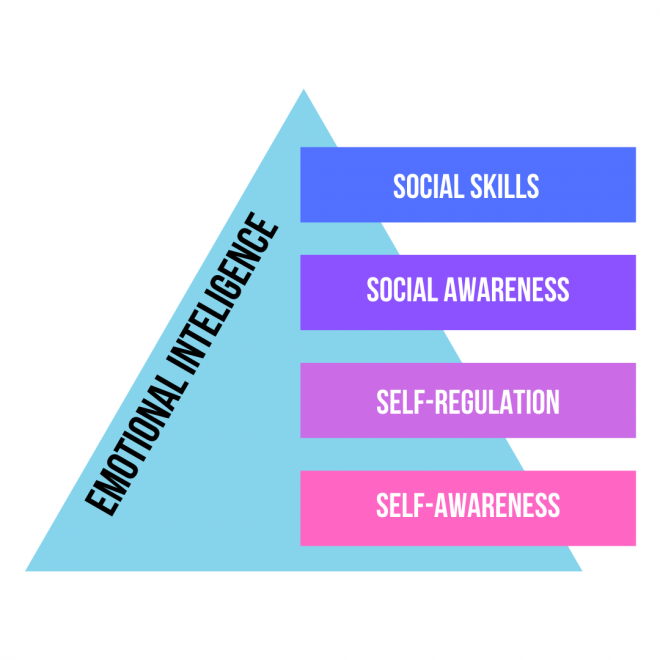10 de December, 2019

What qualities come to mind when you think of a good leader or a good boss? I am sure that no matter who you ask, the answer will include traits such as charisma, empathy, resilience, integrity, confidence, or decision-making skills. These are all characteristics of emotional intelligence.
Every good professional or entrepreneur must have a healthy dose of emotional intelligence to thrive at work. As a matter of fact, EQ (emotional intelligence) is more important than IQ to predict performance. But what does emotional intelligence look like at work?
As you can see with these examples, emotional intelligence is the capacity to be aware and in control of our emotions and manage them to adapt to our environment, succeed in our relationships with others, and fully appreciate ourselves. As with any other capacity, it can be broken down into a set of skills and behaviors that can be learned and developed.

Ready to start on your journey towards emotional intelligence and become a better team player, entrepreneur, or boss at work? Here are a few questions you can ask yourself every day to raise your awareness and foster your emotional intelligence.
Another great way to increase your emotional intelligence and leadership skills is to practice mindfulness. It promotes emotional regulation and mitigates impulsivity by introducing a necessary space of observation and acceptance between the stimuli (what happens to us) and our response. And mindfulness is not only self-reflective; you can be mindful of others as well, which will increase your compassion and ability to understand those around you.
Use your IQ to increase your EQ through study and practice. As a leadership and executive coach, I work with clients on their emotional intelligence every day. Following the approach used by Chade-Meng Tan, author of Search inside Yourself, I focus on mindfulness as the base for emotional intelligence. We must see ourselves objectively and perceive our emotions with a higher level of clarity and resolution to become the best version of ourselves, in life and at work. My clients already have the expertise and the intelligence to complete their jobs, but improving their mindfulness and social awareness maximizes their personal and professional potential.
____________________________________________________________
Do you feel stuck or anxious about the future? Do you feel it’s time to take a leap to keep growing in your career or business? No matter your situation, this free guide will walk you through my coaching process to get you moving and making progress. Get your copy now!
¿Te resulto informativo? Síguenos en @icatalyze para más contenido como este.

In the world of business (regardless of size), crises are inevitable. From economic uncertainty to abrupt market changes, organizations face challenges that can profoundly affect the emotional health of their teams. A striking statistic from the American Psychological Association (APA) reveals that 77% of employees in the United States reported work-related stress in the past […]
Ver más »
“71% of employers value emotional intelligence more than technical skills when evaluating candidates,” according to a 2024 Harvard Business School article titled: Why Emotional Intelligence is Important in Leadership. Diane Garza, iCatalyze CEO, states that “Today, companies face a significant challenge: high talent turnover, especially among new generations like millennials and Gen Z. These […]
Ver más »
This article was originally published in Spanish on Entrepreneur.com. Read the original version HERE. At the heart of effective leadership lies the ability to delegate efficiently. Delegation is not only crucial for time management and operational efficiency, but it is also fundamental for team empowerment and development. However, the real challenge for many leaders is […]
Ver más »